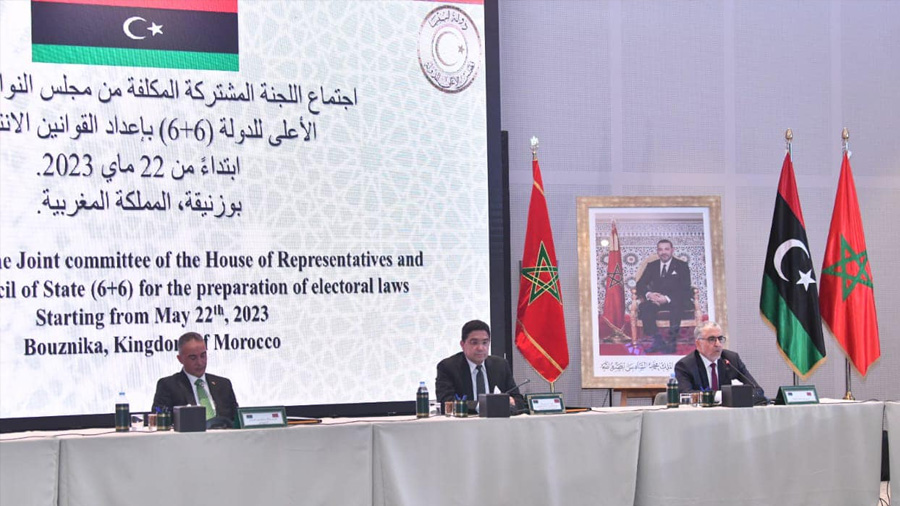The 6+6 Joint Committee, which was formed by the House of Representatives (HoR) and High Council of State (HCS) to draft election law for the holding of presidential and parliamentary elections, said the laws endorsed by the HoR in early October were the final draft that was amended and then signed in a full-quorum session of the HoR.
“The final draft of election laws was enacted by the HoR without any amendments on its part. Only the Committee’s members made the amendments in consensus when they were meeting in Bouznika, Morocco, and those amendments came without changing the essence and goal of the political agreement – the basis on which all agreements in Libya were established.” The Committee said in a letter addressed to the UN envoy and a number of foreign embassies in Libya.
It also clarified that the Committee members met before the passing of the draft laws to amend “some errors and include notes sent by the High National Elections Commission and the UN Support Mission in Libya.”
Election Laws: Legal
The 6+6 Joint Committee reiterated commitment to the 13th amendment of the Constitutional Declaration and expanding participation in consensus, saying that its work had been purely based on the results of previous national dialogues, especially the meetings on the constitutional basis that were held in Egypt and led to a number of agreements.
Meanwhile, the Committee said the reason behind the obligatory step of forming a new unified government and endorsing an abiding draft of laws was to make sure that no candidate would have an advantage against the other or use state resources to back up their own or their affiliates’ election campaigns.
Roadmap Included
The Committee said both the HoR and HCS had given the green light to a proposed roadmap for the executive authority that was provided to the two chambers with the election laws. It added that there were some remarks on the roadmap and they would be tackled in the meetings held by the HoR and HCS: the only two legislative authorities entitled by law to appoint and dismiss executive authority officials as per the Constitutional Declaration.
HoR Speaker Surprised Bathily
The Speaker of the HoR, Aqila Saleh, called on the Secretary General of the UN, Antonio Guterres, to support the HoR efforts that aimed to form a unified government in Libya that would be tasked with leading the country to holding parliamentary and presidential elections.
Saleh added in a letter addressed to Guterres that the HoR had fulfilled its tasks by enacting the 6+6 Joint Committee’s election laws as per the 13th amendment to the constitutional declaration.
This endorsement upsetted the UN envoy Abdoulaye Bathily, who said in a letter to Saleh that he was surprised when he had learned the news through the press and social media that the HoR received the electoral laws, presented them in an HoR session, and approved them.
HCS Rejects News Amendments
The Head of the HCS, Mohammed Takala, rendered the approved election laws as a violation of the political agreement and the 13th amendment of the Constitutional Declaration, adding that the laws were null and void.
Takala said the 6+6 Joint Committee had no right to add any amendments to the election laws after they had been signed in Bouznika. He called on the Chairman of the HNEC, Emad Al-Sayeh, to be committed to the outcomes of the 6+6 Committee that were signed in Morocco.
Responding to Takala’s rejection, the HoR Speaker said there were no amendments made to the election laws’ draft that was presented by the 6+6 Joint Committee, saying the draft was enacted in the form signed by the Committee. He also said Takala lacked experience in chairing and managing the HCS, accusing him of being influenced by external parties.





